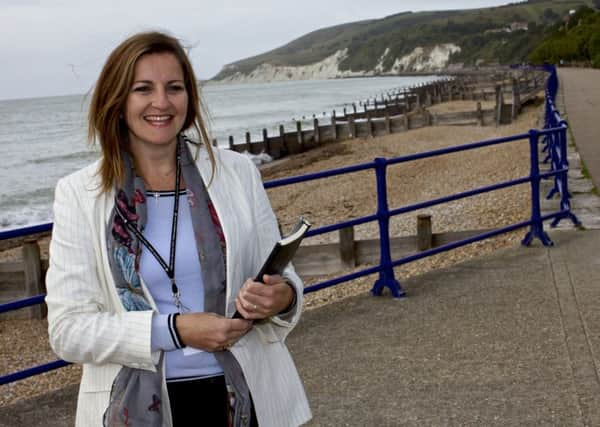CAROLINE ANSELL MP: Debate over Israel and Palestine


For those who don’t know, this three-paragraph letter written in 1917 by the British Foreign Secretary, Arthur James Balfour, gave official backing to a national home for the Jewish people in Palestine and, ultimately, the state of Israel.
One hundred years on, this declaration remains controversial. Israel and Palestine arouse the strongest feelings of support and condemnation, and I receive much correspondence from local residents representing both sides of this most complex of issues.
Advertisement
Hide AdAdvertisement
Hide AdThe debate touched on the politics and history and was well supported by MPs, but whatever your view, the declaration is of immense historical importance.
On one hand, Israel is an extraordinary start-up nation, it has defied the challenges posed by an arid climate, small population and security threats to make significant contribution to advancements in the world in technology and medicine.
For example, your NHS prescription is quite probably derived from an Israeli pharmaceutical, perhaps Teva which has its distribution centre in Eastbourne.
Israeli inventions have transformed the way we live our lives.
Advertisement
Hide AdAdvertisement
Hide AdThe algorithm for sending emails, technology for anti-virus software and the USB flash drive are some of the things the country has developed.
Israel is also a democracy and Israeli Arabs serve as members of parliament, university professors, senior police and army officers and an Arab judge sits on the country’s Supreme Court. The Christian population, oppressed and in serious decline across much of the Middle East, enjoys full rights and freedoms.
But the Balfour Declaration also urged that “nothing shall be done which may prejudice the civil and religious rights of existing non-Jewish communities in Palestine”. It is incontestable that the Palestinian people have suffered greatly and suffer still.
My own view is that had the Arab leadership accepted the 1947 UN Partition Plan, there could have been two prosperous societies– one Arab, one Jewish - working together.
Advertisement
Hide AdAdvertisement
Hide AdAlas, it didn’t happen, and it looks unlikely to happen anytime soon, particularly with Hamas in control of Gaza.
This means continued loss of lives on both sides and it is a tragedy.
But there is hope in the form of the remarkable new city of Rawabi, the first planned conurbation built for and by Palestinians. When completed, it will be a business and commercial hub and home to 40,000 people.
And at the Hebrew university of Jerusalem, two new programmes are bringing Israelis and Palestinians together.
Advertisement
Hide AdAdvertisement
Hide AdSpeaking of it, the lead professor said: “This programme not only advances science, but through it sends a message of hope and friendship, and of the importance of working together to find solutions that improve the health of our communities.”
Let’s indeed hope that when the next significant anniversary of the Balfour Declaration arrives there is peace in these lands.